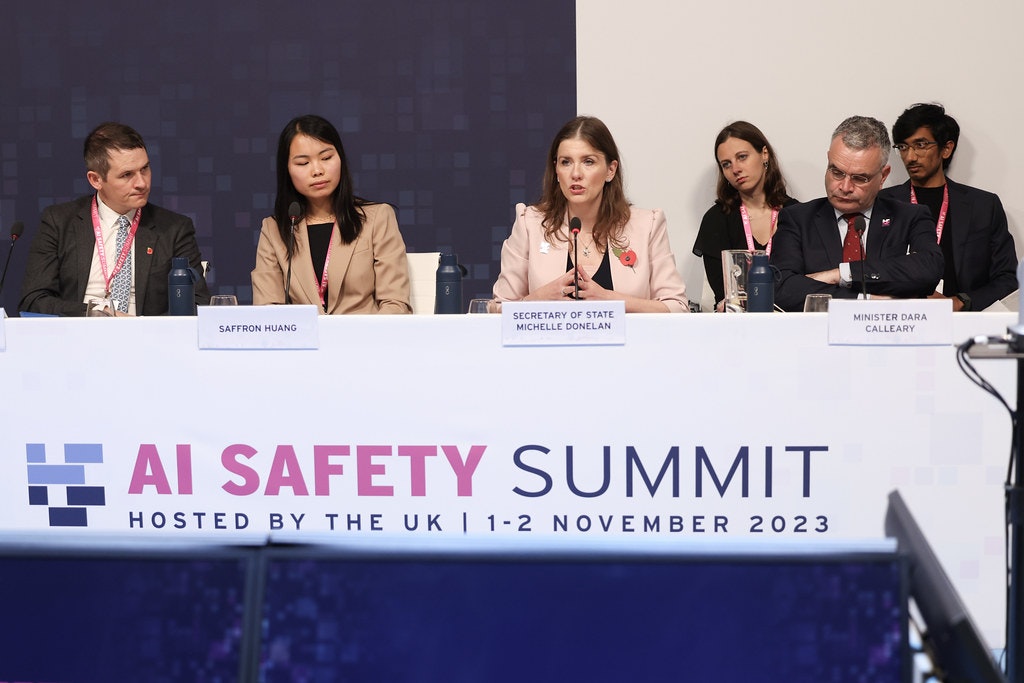Paris-based AI lab Mistral has come out of stealth mode today, announcing a €105m seed round led by US VC Lightspeed, as the company lays out its plans to build a European competitor to OpenAI.
The founding team of Timothée Lacroix, Guillaume Lample and Arthur Mensch bring with them nearly two decades of combined experience working in AI and machine learning at Meta and Deepmind.
Other backers of Mistral include French billionaire Xavier Niel, former Google CEO Eric Schmidt and Rodolphe Saadé — CEO of French shipping company CMA CGM. VC investors including Motier Ventures, La Famiglia, Headline, Exor Ventures, Sofina and firstminute capital, and also joining the round are JCDecaux's family office and France’s public investment bank Bpifrance.
What does Mistral actually do?
Mistral is building its own large language models (LLMs) — the tech behind OpenAI’s ChatGPT — to serve business clients and help them improve their processes around R&D, customer care and marketing, as well as giving them the tools to build new products with AI.
Mensch says the company will use an open source strategy to build generative AI with “European DNA”. In practice, this means that Mistral will make its work accessible to safety researchers who are trying to figure out how to control powerful AI, as well as work with its customers to build safer and more secure bespoke models.
This sets the startup apart from its Silicon Valley-based competitor OpenAI — which, so far, has centralised its safety efforts.
In terms of differentiating itself from other European companies trying to build LLMs for enterprises — which include Stability AI, Aleph Alpha, Sana Labs, LightOn, ZetaAlpha and Silo AI — Mistral believes the team’s expertise will allow it to build some of the most efficient systems out there.
“We are pioneers in the field — the three of us — in building the technology behind LLMs,” says Mensch. “If you know how to do these things, you can do it much more efficiently.”
He adds that his own work on Deepmind’s Chinchilla — an AI model designed to require less compute power for training than OpenAI’s GPT-4 — has given him firsthand experience of making models more efficient, and that there are still “lots of gains to be made.”
'Costly'
Mensch says that “a large portion” of the €105m raise will be used to rent compute power to train its first model, which will be ready in “early 2024". Mistral plans to build its enterprise products with its own AI models, setting it apart from others in the space — such as Sana and Silo — who use third-party models in combination with their own models.
Mensch says this will allow Mistral to build better AI products for its customers, even if the costs are higher than using pre-existing models.
“We believe that being located on the core technology is super important,” he says. “We see a future where there are only a few actors that are training the core technology, because it’s very costly.”
Mensch adds that, by being the original creator of the models it deploys, it’ll be able to continually improve them, and use its customers’ data and feedback to build more specialised products.
But despite the monster seed round and stellar CVs, Mistral still has a hill to climb. The cost of training its own foundational model will naturally see the company spend more money than rivals building products with third-party help, and companies like Sana and Silo already have built relationships with large clients.
That said, Mistral coming out of the blocks like this will cheer many European tech watchers, who’ve seen the continent's best minds in AI flock to US-owned companies. Lacroix, Lample and Mensch’s new venture shows that there’s appetite to build cutting edge AI projects this side of the Atlantic, and that there’s capital available to make it happen.


